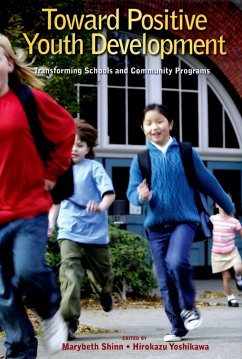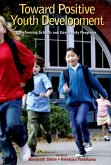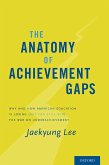Social settings have enormous power to promote or hinder positive youth development. Researchers and practitioners know a great deal about features of schools and programs for youth that affect development, but much less about how to transform settings to bring about these desirable features. This book shows how to harness the power of settings. It shifts the debate from simply enhancing youth outcomes at the individual level to improving the settings of youths' daily lives. The book offers researchers and practitioners blueprints for creating and changing influential settings including classrooms, schools, universities, out-of-school time programs, ethnic systems of supplementary education, and other community-based programs. Leading scholars in psychology, education, human development, sociology, anthropology, economics, law, and public policy discuss a wide array of social change strategies, and describe how to measure key features of settings as a target and guide for change. The authors also demonstrate how larger social structures - such as school districts, community coalitions, community data resources - can support change. Many of the chapters describe ways to make settings work for all youth, including those marginalized by reason of race, ethnicity, social class, or sexual orientation.
Toward Positive Youth Development will guide researchers, educators, administrators and policy makers to improve schools and youth programs for all of America's youth.
Dieser Download kann aus rechtlichen Gründen nur mit Rechnungsadresse in A, B, BG, CY, CZ, D, DK, EW, E, FIN, F, GR, HR, H, IRL, I, LT, L, LR, M, NL, PL, P, R, S, SLO, SK ausgeliefert werden.









